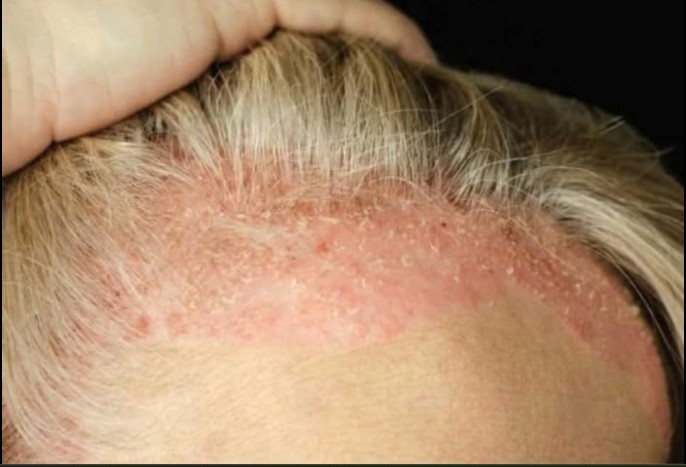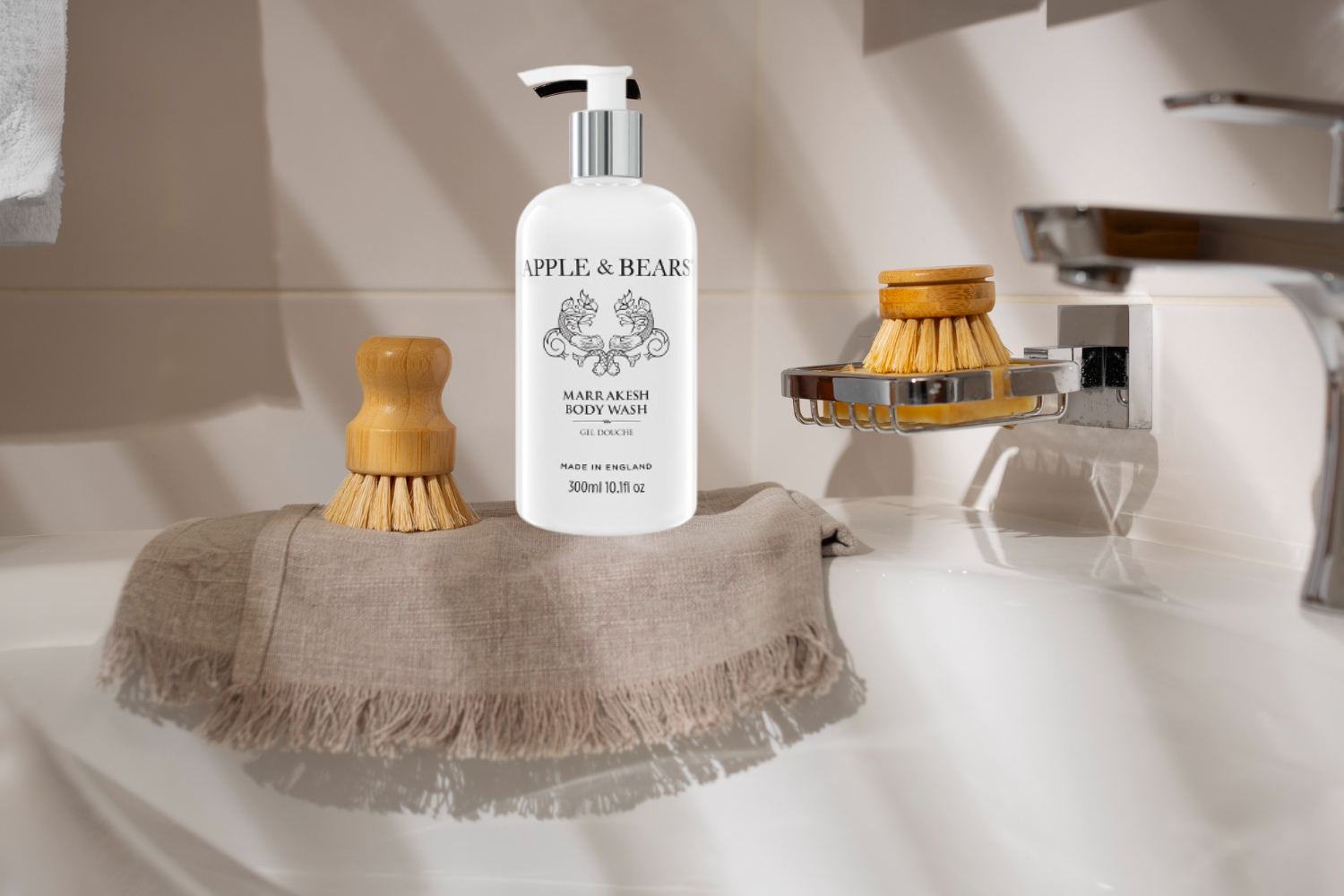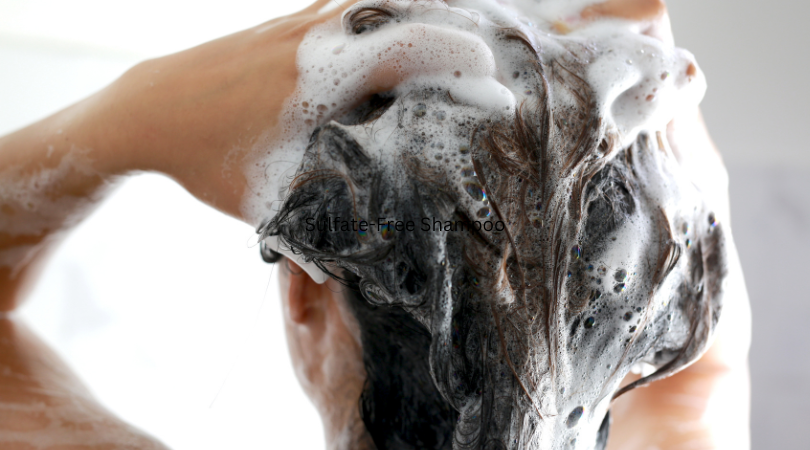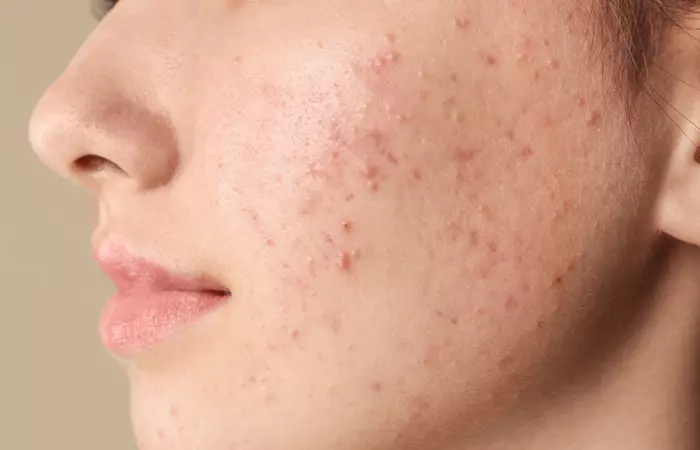
Showering is an essential part of daily life for most people, offering a moment of relaxation and refreshment. But have you ever considered how the products you use in the shower might impact your health and the environment? Many common shower products contain ingredients that could have hidden consequences, from drying out your skin and hair to causing environmental harm. In this article, we’ll dive deep into the surprising effects of showering with certain products and provide tips on how to make healthier, more eco-friendly choices.
The Hidden Dangers of Shower Products

We often focus on the immediate benefits of shower products—cleanliness, fragrance, and ease of use. However, many personal care products contain chemicals that may not only harm your skin but also pose long-term risks to your health. Let’s explore the common ingredients in shower products that you should be aware of.
Harsh Chemicals in Shower Products

A significant number of shampoos, body washes, and soaps contain ingredients like sulfates, parabens, and artificial fragrances. These chemicals may enhance the performance of the product, but they also come with potential side effects.
Sulfates: Stripping Your Skin of Natural Oils

Sulfates, including sodium lauryl sulfate (SLS) and sodium laureth sulfate (SLES), are commonly used in shampoos and body washes because they create a foamy lather. However, they can strip your skin and hair of natural oils, leading to dryness, irritation, and even scalp conditions like dandruff. Over time, continuous exposure to sulfates can damage the skin’s protective barrier, leaving it vulnerable to environmental pollutants and allergens.
Parabens: Preserving Your Product, but at What Cost?

Parabens are preservatives added to personal care products to prevent microbial growth and extend shelf life. While they may keep your products fresh, research has shown that parabens can mimic hormones in the body, which may disrupt the endocrine system. This disruption could potentially lead to issues such as fertility problems, hormone imbalances, and increased risk of certain cancers.
Artificial Fragrances: Hidden Chemicals

Many shower products, including soaps and body washes, contain artificial fragrances that can be a cocktail of undisclosed chemicals. These fragrances are often linked to skin irritation, allergic reactions, and respiratory issues. For people with sensitive skin, the long-term use of products with artificial fragrances can cause rashes and exacerbate conditions like eczema or psoriasis.
The Impact on Skin and Hair
The products you use in the shower play a direct role in the health of your skin and hair. Harsh chemicals, like sulfates and parabens, can lead to a variety of issues over time.
Dryness and Irritation

One of the most common complaints about shower products with harsh chemicals is dryness. Sulfates, for example, remove the natural oils from your skin and hair, leaving them dry and prone to irritation. The skin, deprived of its natural moisture, may become flaky, red, and itchy. Hair may also become brittle, losing its softness and shine.
Hair Damage

For those who color or treat their hair, sulfates can be especially damaging. These chemicals cause the hair to lose moisture and can accelerate the fading of color-treated hair. If you’ve ever noticed your hair becoming more brittle and prone to split ends, it could be the result of using shampoos with sulfate-based detergents.
Sensitivity and Allergies
The synthetic fragrances and chemicals found in shower products can trigger allergic reactions in some individuals. Skin conditions such as eczema and psoriasis can be aggravated by prolonged exposure to these ingredients. The result can be redness, hives, or an overall feeling of discomfort.
Environmental Impact of Shower Products

In addition to affecting your health, many shower products contribute to environmental pollution. From non-biodegradable ingredients to plastic waste, these products often have a long-lasting effect on the planet.
Non-Biodegradable Ingredients in Shower Products
Some of the chemicals used in shower products are not biodegradable. Microbeads, used in exfoliating scrubs, are a prime example. These tiny plastic particles enter the water system when washed off during your shower, where they pose a significant threat to aquatic life. Even some chemicals in shampoos and body washes, such as phosphates, do not break down easily, polluting rivers, lakes, and oceans.
Plastic Waste

Plastic bottles are one of the most significant contributors to environmental waste. According to a study by the Environmental Protection Agency (EPA), personal care products are a major source of plastic waste. Many people use bottled shampoos, conditioners, and body washes without considering their environmental impact. As these bottles end up in landfills, they contribute to the growing problem of plastic pollution.
Healthier and Eco-Friendly Alternatives
While showering with chemical-laden products can have negative consequences, there are many healthier, eco-friendly alternatives that you can incorporate into your routine. Here are some suggestions for making your shower routine both safe and sustainable.
Switch to Natural, Chemical-Free Products

The best way to reduce the harmful impact of your shower products is to switch to natural, chemical-free alternatives. Look for shampoos, body washes, and soaps that are free from sulfates, parabens, and artificial fragrances. Instead, opt for products that are formulated with plant-based ingredients such as aloe vera, coconut oil, and shea butter. These ingredients provide nourishment without the risks associated with synthetic chemicals.
Sulfate-Free Shampoos
Sulfate-free shampoos are gentler on your hair and skin. Many sulfate-free shampoos use milder surfactants, such as decyl glucoside, which cleanses without stripping natural oils. These shampoos are especially beneficial for individuals with dry or sensitive scalps.
Paraben-Free Products
Look for body washes, lotions, and shampoos labeled “paraben-free.” Many brands now offer preservative-free products that use natural preservatives like rosemary extract or vitamin E. These products will protect your skin without exposing you to the risks associated with parabens.
Fragrance-Free Options
If you have sensitive skin, it’s a good idea to avoid products with added fragrances. Opt for fragrance-free body washes and shampoos, which are less likely to cause irritation. Many organic and natural skincare brands offer scent-free options that are just as effective as their scented counterparts.
Reduce Plastic Waste with Sustainable Packaging
In addition to choosing chemical-free products, reducing plastic waste is another crucial step in making your shower routine more eco-friendly. Look for brands that use biodegradable, recyclable, or refillable packaging. Bar soaps are an excellent alternative to liquid body wash, as they require minimal packaging and often come in recyclable cardboard boxes.
Refillable Bottles
Many brands now offer refillable shampoo and body wash containers. By purchasing refills instead of new plastic bottles, you can help reduce your plastic footprint significantly. This is an easy and effective way to make your shower routine more sustainable.
Eco-Friendly Brands
Choose shower products from companies committed to sustainability. Look for brands that prioritize ethical sourcing, biodegradable ingredients, and eco-friendly packaging. Supporting these companies not only benefits the environment but also encourages others to adopt similar practices.
Conclusion
The consequences of showering with harsh chemicals and unsustainable products are real and impactful. From skin dryness and hair damage to environmental pollution, the products you choose can have far-reaching effects. However, by making the switch to natural, chemical-free products and reducing plastic waste, you can significantly improve your health and contribute to a cleaner planet.
Start by choosing sulfate-free shampoos, paraben-free body washes, and fragrance-free products. Additionally, make an effort to reduce plastic waste by opting for sustainable packaging. Your skin, hair, and the environment will thank you for the change.
Sources:
-
Environmental Working Group (EWG). (2021). Skin Deep: Cosmetic Safety Database
-
American Academy of Dermatology Association (AAD). (2020). How to Choose Skin Care Products
-
Environmental Protection Agency (EPA). (2020). Reducing Plastic Waste